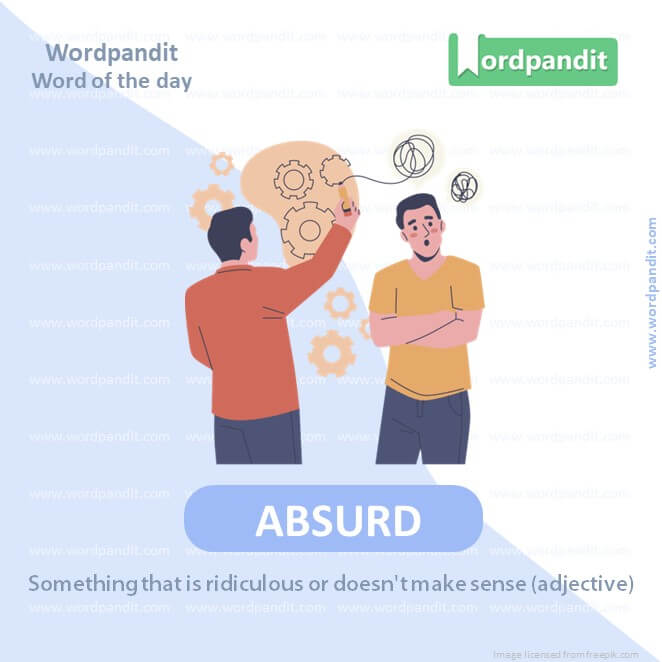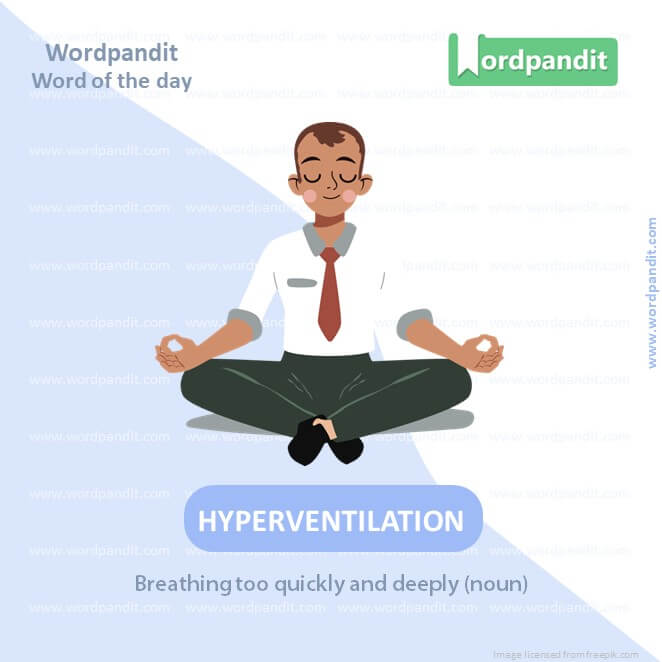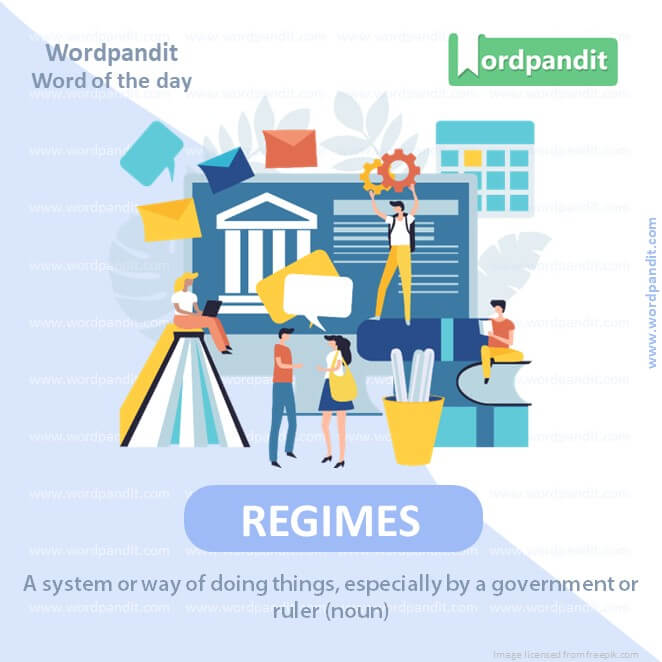Daily Vocabulary Words: List of Daily Used Words in Leading International Newspapers
Hi there. Welcome to this special section @ Wordpandit.
Our endeavour here is very simple: to highlight important daily vocabulary words, which you would come across in leading newspapers in the country. We have included the following newspapers in our selection:
• The New York Times
• The Washington Post
• Scientific American
• BBC
• The Guardian
• Psychology Today
• Wall Street Journal
• The Economist
We are putting in extensive work for developing your vocabulary. All you have got to do is be regular with this section and check out this post on a daily basis. This is your repository of words that are commonly used and essentially, we are posting a list of daily used words. Hence, this has significant practical application as it teaches you words that are used commonly in leading publications mentioned above.
Visit the website daily to learn words from leading international newspapers.

WORD-1: ABSURD
CONTEXT: Today’s claim that a Chinese spy in his 20s cruising the Westminster drinks circuit might pose a threat to the British state is absurd. MPs always overstate their role in foreign affairs.
SOURCE: The Guardian
EXPLANATORY PARAGRAPH: Imagine you see a fish trying to ride a bicycle. That’s silly, right? Because fish live in water and they don’t ride bicycles! When something is so silly or doesn’t make any sense like that fish on a bicycle, we call it “absurd”.
MEANING: Something that is ridiculous or doesn’t make sense (adjective).
PRONUNCIATION: ab-SURD
SYNONYMS: Ridiculous, ludicrous, preposterous, silly, laughable, nonsensical, unreasonable
USAGE EXAMPLE:
1. The idea of a flying pig is absurd.
2. It’s absurd to think that a cat can speak like humans.
3. He made an absurd claim that he could breathe underwater.
4. The play had an absurd ending that left everyone laughing.

WORD-2: MACHO
CONTEXT: Boris Johnson, back in 2017 when he was foreign secretary, might have felt a macho thrill from sending an aircraft carrier to the South China Sea – where it could be sunk in an hour – but Britain’s defences are no more vulnerable to Chinese attack than China’s are to Britain. It is all defence lobby hyperventilation.
SOURCE: The Guardian
EXPLANATORY PARAGRAPH: Imagine a superhero who is super strong, acts really brave, and shows off his muscles. Sometimes, when someone tries to act very strong or tough, like that superhero, we call them “macho”.
MEANING: Showing off strength or bravery, often to a point where it seems too much (adjective).
PRONUNCIATION: MAH-cho
SYNONYMS: Manly, tough, strong, rugged, masculine, strapping, robust
USAGE EXAMPLE:
1. John always acts so macho around his friends.
2. She didn’t like the macho attitude of some of the boys in her class.
3. The movie character was a macho hero who could fight off any villain.
4. He tried to impress everyone with his macho stories.

WORD-3: HYPERVENTILATION
CONTEXT: Boris Johnson, back in 2017 when he was foreign secretary, might have felt a macho thrill from sending an aircraft carrier to the South China Sea – where it could be sunk in an hour – but Britain’s defences are no more vulnerable to Chinese attack than China’s are to Britain. It is all defence lobby hyperventilation.
SOURCE: The Guardian
EXPLANATORY PARAGRAPH: Have you ever blown up a balloon really fast and felt out of breath? When someone breathes too fast and too much, like they’re blowing up a balloon quickly, we say they are “hyperventilating”.
MEANING: Breathing too quickly and deeply (noun).
PRONUNCIATION: hyper-ven-ti-LAY-shun
SYNONYMS: Overbreathing, panting, puffing, gasping, breathing hard, gulping air, rapid breathing
USAGE EXAMPLE:
1. After running the race, she was hyperventilating and needed to sit down.
2. The fear of spiders caused him to hyperventilate.
3. She began to hyperventilate when she couldn’t find her puppy.
4. The doctor advised him to take deep breaths when he felt like he was starting to hyperventilate.

WORD-4: PARANOID
CONTEXT: Linking British interests to those of the outside world is a paranoid legacy of empire. The corridors of the Foreign Office are hung with pictures of the glory days when foreign secretaries would lay down the law of acceptable behaviour to lesser regimes abroad.
SOURCE: The Guardian
EXPLANATORY PARAGRAPH: Imagine if you constantly thought that your toys were planning to hide from you. Even if they were just toys, you kept thinking about it. When someone is very, very worried about things that might not be real or true, we say they are “paranoid”.
MEANING: Feeling extremely worried or scared about something that might not be real (adjective).
PRONUNCIATION: PAIR-uh-noid
SYNONYMS: Anxious, fearful, suspicious, mistrustful, wary, nervous, tense
USAGE EXAMPLE:
1. She became paranoid about missing her bus and checked the time every minute.
2. It’s just a noise, don’t be paranoid.
3. The lack of sleep made him paranoid and jumpy.
4. He was always paranoid about what others thought of him.

WORD-5: REGIMES
CONTEXT: Linking British interests to those of the outside world is a paranoid legacy of empire. The corridors of the Foreign Office are hung with pictures of the glory days when foreign secretaries would lay down the law of acceptable behaviour to lesser regimes abroad.
SOURCE: The Guardian
EXPLANATORY PARAGRAPH: Imagine there’s a rule in your house that you must go to bed by 8 PM. That’s a rule or a way things are done. In big places, like countries, they have rules and ways things are done too. These set ways or rules in big places or countries are called “regimes”.
MEANING: A system or way of doing things, especially by a government or ruler (noun).
PRONUNCIATION: reh-JEEMS
SYNONYMS: Governments, administrations, systems, rules, authorities, establishments, orders
USAGE EXAMPLE:
1. The country has seen many different regimes over the past century.
2. The new regime promised more freedom for the people.
3. Under the current regime, taxes have been lowered.
4. Many hope for a change in the regime to bring about positive reforms.
WORD-6: ACQUAINTANCE
CONTEXT: The UK’s relationship toward China is no different. In the run-up to the Beijing Olympics in 2008, visiting British ministers were told to “raise human rights issues” in any meeting with their opposite numbers – as James Cleverly was tasked to do on a recent visit to Beijing. This they duly did, with a certain embarrassment. The response was always a dignified Chinese nod and smile. A Chinese acquaintance told me they felt sorry for the British for having to be rude their hosts.
SOURCE: The Guardian
EXPLANATORY PARAGRAPH: You know your best friend very, very well, right? But you might also know someone from school or the park whom you say “hi” to but don’t know as well as your best friend. This person whom you know a little bit is called an “acquaintance”.
MEANING: Someone you know but not very closely (noun).
PRONUNCIATION: uh-KWAIN-tens
SYNONYMS: Contact, associate, colleague, connection, casual friend, comrade, peer
USAGE EXAMPLE:
1. I met Tom at a conference, and we’ve remained acquaintances since then.
2. She has many acquaintances in the music industry.
3. While he had many acquaintances, he had few close friends.
4. We are just acquaintances, not close friends.
WORD-7: GRANDSTANDING
CONTEXT: The calibration of any nation’s response to events beyond its shores has to walk a fine line between promoting universal human rights and pointless grandstanding. The repression of dissenters and treatment of minorities in Tibet and Xinjiang should be condemned, but there are limitations on what western powers can do.
SOURCE: The Guardian
EXPLANATORY PARAGRAPH: Imagine if someone at school did a small good thing but acted as if they did the biggest and best thing ever, just to get attention. When someone shows off or tries to make themselves look very important in front of others, we call it “grandstanding”.
MEANING: Trying to impress or get attention in a showy way (verb).
PRONUNCIATION: GRAND-stand-ing
SYNONYMS: Showboating, boasting, bragging, showing off, playing to the gallery, posturing, posing
USAGE EXAMPLE:
1. The athlete was grandstanding after scoring a simple goal.
2. Politicians are often accused of grandstanding to get more votes.
3. She didn’t appreciate his grandstanding during the meeting.
4. Some celebrities are known for grandstanding to stay in the limelight.
WORD-8: DISSENTERS
CONTEXT: The calibration of any nation’s response to events beyond its shores has to walk a fine line between promoting universal human rights and pointless grandstanding. The repression of dissenters and treatment of minorities in Tibet and Xinjiang should be condemned, but there are limitations on what western powers can do.
SOURCE: The Guardian
EXPLANATORY PARAGRAPH: Imagine if everyone in your class wanted to play tag, but one or two kids wanted to play hide and seek. These one or two kids who have a different opinion or want something different are called “dissenters”.
MEANING: People who disagree or have different opinions from a group (noun).
PRONUNCIATION: di-SEN-terz
SYNONYMS: Objectors, protesters, opponents, nonconformists, rebels, mavericks, contrarians
USAGE EXAMPLE:
1. The decision was almost unanimous, but there were a few dissenters.
2. Dissenters voiced their concerns about the new policy.
3. The group welcomed feedback from dissenters to ensure a balanced view.
4. The dissenters held a separate meeting to discuss their viewpoints.
WORD-9: CONDEMNED
CONTEXT: The calibration of any nation’s response to events beyond its shores has to walk a fine line between promoting universal human rights and pointless grandstanding. The repression of dissenters and treatment of minorities in Tibet and Xinjiang should be condemned, but there are limitations on what western powers can do.
SOURCE: The Guardian
EXPLANATORY PARAGRAPH: Imagine if you built a tower with blocks and someone said, “This tower is not safe and should not be used!” They have judged it as bad or wrong. When someone says something is very bad or wrong, we say it’s “condemned”.
MEANING: Said that something is wrong or bad, or judged something as unacceptable (verb).
PRONUNCIATION: kon-DEMNED
SYNONYMS: Criticized, disapproved, denounced, censured, rebuked, reproached, slammed
USAGE EXAMPLE:
1. The act was widely condemned by leaders around the world.
2. The old building was condemned and scheduled for demolition.
3. She condemned his actions as selfish and irresponsible.
4. Many people condemned the decision to close the local hospital.
WORD-10: PLUMMETING
CONTEXT: It is always possible that China, like Russia and other dictatorships, may be entering a period of instability. Present forecasts are that the Chinese economy may be entering a period of retrenchment. Its property market – long dependent on rapid urbanisation – is collapsing and it labour supply is plummeting.
SOURCE: The Guardian
EXPLANATORY PARAGRAPH: Imagine if you dropped a toy from a high place and it fell down really fast. When something falls or goes down quickly, like your toy, we say it’s “plummeting”.
MEANING: Falling or dropping straight down quickly (verb).
PRONUNCIATION: PLUM-met-ing
SYNONYMS: Tumbling, diving, dropping, crashing, descending, falling rapidly, nose-diving
USAGE EXAMPLE:
1. The price of the product was plummeting due to lack of demand.
2. The stone went plummeting into the pond.
3. After the bad news, the company’s stocks started plummeting.
4. The bird was seen plummeting from the sky before it managed to stabilize its flight.







